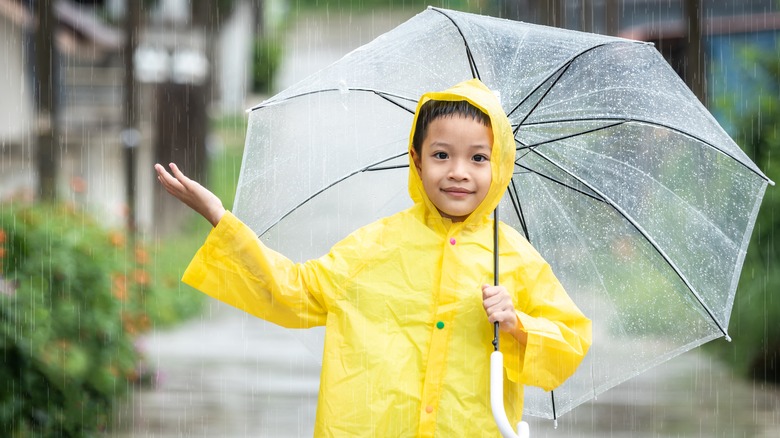What Are PFAS And Why Are They Showing Up In 'Nontoxic' Children's Products
Children's products advertised as waterproof and stain-resistant, including those labeled green or nontoxic, may contain harmful "forever chemicals" known as per- and polyfluoroalkyl substances (PFAS), according to a recent 2022 study published in the journal Environmental Science and Technology. According to The Guardian, scientists at the Silent Spring Institute wanted to determine whether or not products that were meant to be nontoxic and environmentally friendly still contained an umbrella group of chemicals linked to cancer and other diseases known as PFAS. To find out, they tested 93 different children's products, including clothes, bedding, and furnishings for fluorine, which is a marker of PFAS.
The results revealed that 54 of the 93 products had measurable levels of fluorine, 21 of which were marketed as "green" or free of toxins. However, PFAS were only detected in products specifically labeled waterproof or stain-resistant, some of which were also advertised as eco-friendly (via The Hill). Out of all the items tested, pillow protectors had the highest levels of PFAS.
Experts say that PFAS should not be in green children's products
While further research is still needed, the study's findings shed a light on the need for green product certifiers to consider PFAS in their certification. To date, green certifications can vary from product to product and don't always test for the same substances (via The Hill). According to Kathryn Rodgers, a doctoral student at Boston University School of Public Health and co-author of the study, the fact that these products come into such close contact with children raises an alarm.
"Given the toxicity of PFAS and the fact that the chemicals don't serve a critical function, they should not be allowed in products," Rodgers said in a statement, per The Hill. That's why she recommends limiting the use of PFAS through legislation (via The Conversation). Classifying them as hazardous substances and phasing them out of children's products can limit the amount of exposure to PFAS, decreasing the risk of cancer and other chronic illnesses.


